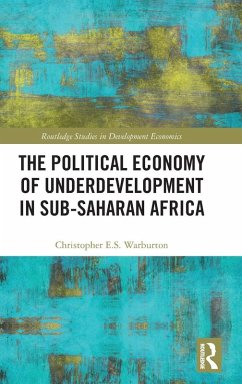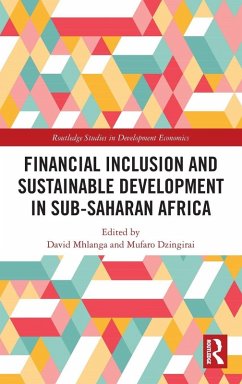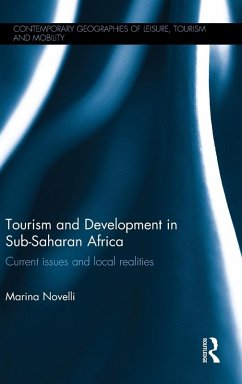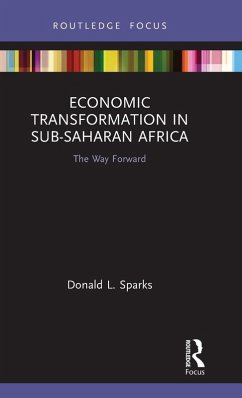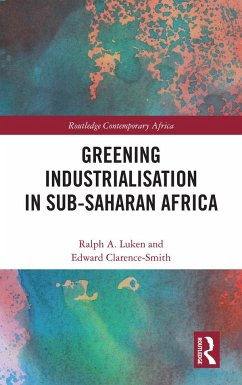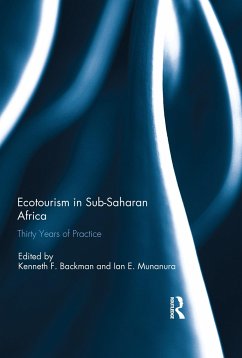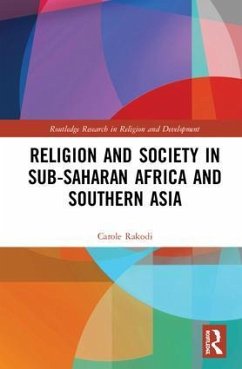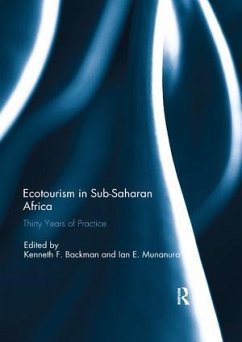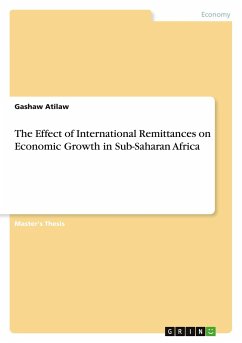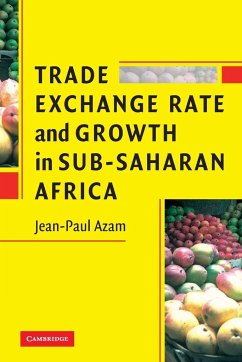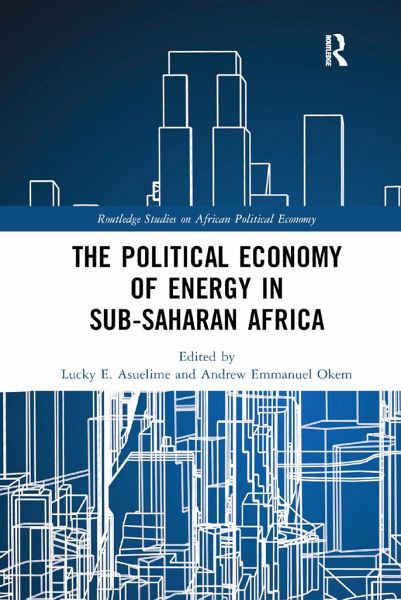
The Political Economy of Energy in Sub-Saharan Africa
Versandkostenfrei!
Versandfertig in 1-2 Wochen
55,99 €
inkl. MwSt.
Weitere Ausgaben:

PAYBACK Punkte
28 °P sammeln!
A deepening ecological crisis is rearing its head in sub-Saharan Africa, as it faces a myriad of challenges in regards to the development of its energy sector. The 'dirty now and clean up later' approach to the environment has a strong appeal, particularly because it is often thought of as the last place to try to edge in another priority - especially if that priority is perceived by many to be an economic luxury. Asuelime and Okem bring together a team of specialist contributors who investigate to what extent sub-Saharan Africa has displayed foresight or politico-economic integrity. The book ...
A deepening ecological crisis is rearing its head in sub-Saharan Africa, as it faces a myriad of challenges in regards to the development of its energy sector. The 'dirty now and clean up later' approach to the environment has a strong appeal, particularly because it is often thought of as the last place to try to edge in another priority - especially if that priority is perceived by many to be an economic luxury. Asuelime and Okem bring together a team of specialist contributors who investigate to what extent sub-Saharan Africa has displayed foresight or politico-economic integrity. The book shows that the state's ability to meet the demands of provision of energy in sub-Saharan Africa has led to heavy investments in infrastructure, transmission and distribution of energy to the citizens. However, the inefficiencies, corruption and unhealthy bureaucratic challenges that accompany this have led to urgent problems, which are thoroughly explored in this book. The Political Economy of Energy in Sub-Saharan Africa will be of interest to students and scholars of African Studies, Development Studies, political science and environment.





